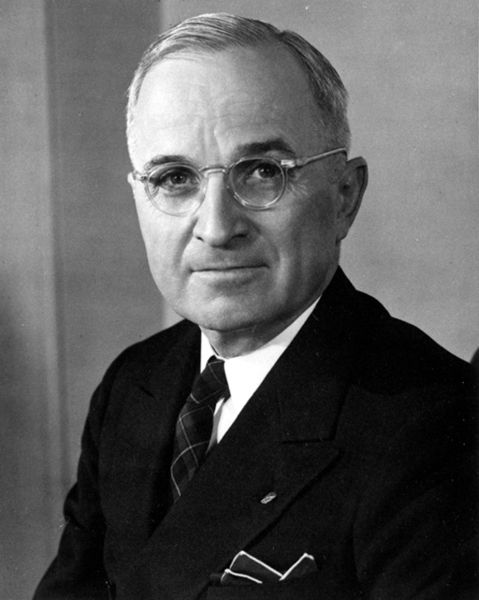 Some people are really not meant for this earth. They happen to exist through luck or by the grace of others, or simply because evolution has not provided sufficient stimulus to cause them to bring themselves to an end.
Some people are really not meant for this earth. They happen to exist through luck or by the grace of others, or simply because evolution has not provided sufficient stimulus to cause them to bring themselves to an end.
Such was the case with union leaders in early 1980s, and not it seems to be the case with the Wall Street Journal. In this lovely editorial, Jeffrey Scott Shapiro wonders why President Bush is receiving such a public flogging as hasn’t been seen since Truman, and whines that the attacks on Mr. Bush have been slanderous. Perhaps some have been, but there have been plenty more that are well deserved. Let’s review a bit with Mr. Shapiro, who appears to need the lesson.
The Economy
He argues that the current administration has little to do with the current economic mess. Their appointee to chair the SEC, Christopher Cox led the commission that weakened the firewall within banks between lending and investing so that an investment failure could cause a banking failure, which is what happened.
Taking Deregulation to Its Illogical Conclusion
Over the last eight years we have seen more food scares than in the previous forty. At one time it’s meat, and then it’s spinach, and then tomatoes. Today we all worry about products brought in from China. The regulatory regime of the FDA is so lax its amazing anything is safe to eat. At the same time we are polluting our air and water while consuming as much oil as ever. Mr. Bush entered the stage with corporate greed on everyone’s mind. Enron and Worldcom were household names. You would think we would keep a closer eye on Corporate America, and the Sarbanes Oxley act was meant to do just that. And yet we have just shoveled another $700 billion into the banks.
Losing Two Wars
It was perhaps inevitable and likely necessary that we would go to war with the Taliban in order to root Al Qaida out of Afghanistan. That we haven’t won the war is inexcusable. President Bush doesn’t understand what winning a war is. It is not enough to simply have moved troops into a particular piece of real estate, but rather to accomplish a particular political objective. In Afghanistan that was to install a stable democratic government. Stability requires lots and lots of time, effort, planning, and money, which Mr. Bush denied the Afghans by devoting his attention elsewhere. Today we see fighting along the border, a resurgence of the Taliban outside of Kabul, and war lords re-emerging as power centers. All of this was not inevitable. It is one thing to try and fail, but we failed to try.
The other war was a war of choice that we entered because we were not told the truth. President Bush claimed on more than one occasion that he acted on the same intelligence that President Clinton had. If that was the case (and it seems that it was), then Mr. Bush demonstrated a shocking lack of judgment for the job in which he found himself.
But that wasn’t the worst of it, once in Iraq we failed to stabilize the situation, to provide basic services to the citizens, and to re-establish any semblance of normality in their lives. Rather than paying attention to the deteriorating situation, Mr. Bush believed his chief lieutenants, Donald Rumsfeld, Dick Cheney, and Condoliza Rice, as was well documented by Bob Woodward.
Loss of Moral Authority
Engaging in a war of choice against the wishes of most of the world was one of the many ways in which we lost the respect of the common individual in many countries. By creating prisons and holding people indefinitely without trial, the administration flouted the law. Allowing people to be transported to far away countries for the purposes of torture demonstrated to people outside the U.S. that we would do anything that we thought justifiable in the name of national security. Denying them public trials further demonstrates a level of depravity usually attributed to petty dictators.
Isolation of America
Every foreign visitor has been subject to treatment that is usually reserved for common criminals. Upon entry their pictures and fingerprints are taken, stored in a system of questionable security, subjecting them to potential identity theft, a problem that this administration has generally ignored. It has been all but impossible for residents of the middle east to visit, due to extensive consular demands. The effort required to visit the U.S. has cost us tourism and business as organizations have moved their meetings elsewhere.
Fear
I reserve my strongest ire for Mr. Bush and his sidekick for having led America, not from a position of strength, where he could have told people after 9/11 that the best way to get back at people who do not believe in our way of life is to rebuld and outmarket them; but instead from a position of fear. Mr. Bush spread fear everywhere he went. He did it perhaps because he was fearful. But he also profited from fear, scoring political points off of peoples’ fear. He imposed onerous rules at airports, treated foreigners like criminals, snooped into people’s private lives, and violated principles many Americans hold dear.
 And so perhaps some level of disrespect is deserved. Mr. Shapiro points out that after a generation people came to value Harry Truman and his presidency, and he argues that the same could happen with President Bush. Harry Truman stood up to his military by integrating them, ended WWII in the Pacific through what could only have been a terrible choice, stood up against Stalin in Germany, and stood up against his own general in Korea. He was attacked from the right because of wrongful accusations against his secretary of state by a Republican whacko named Joe McCarthy. History showed he was right in each of the above cases, and his critics were wrong. Does anyone seriously believe President Bush is in the same league as President Truman? If so, please pass me what you’re smoking.
And so perhaps some level of disrespect is deserved. Mr. Shapiro points out that after a generation people came to value Harry Truman and his presidency, and he argues that the same could happen with President Bush. Harry Truman stood up to his military by integrating them, ended WWII in the Pacific through what could only have been a terrible choice, stood up against Stalin in Germany, and stood up against his own general in Korea. He was attacked from the right because of wrongful accusations against his secretary of state by a Republican whacko named Joe McCarthy. History showed he was right in each of the above cases, and his critics were wrong. Does anyone seriously believe President Bush is in the same league as President Truman? If so, please pass me what you’re smoking.
 James Bamford is well known for his revealing of the National Security Agency in The Puzzle Palace, published in 1983. He has written two updates since then, Body of Secrets and The Shadow Factory, the latest one covering the Bush Administration in some detail. Bamford’s technical details in The Shadow Factory are nowhere near as good as they were in The Puzzle Palace, which is something that really attracted me to his writing. Also, in this book, Bamford seems to play both sides of the fence, at one point arguing that the attacks on 9/11 were an intelligence failure, while at the same time arguing that we must safeguard our civil liberties. This works, mostly because he successfully argues (in my opinion) that the government had all the power it needed to stop the attacks, but that incompetence ruled the day.
James Bamford is well known for his revealing of the National Security Agency in The Puzzle Palace, published in 1983. He has written two updates since then, Body of Secrets and The Shadow Factory, the latest one covering the Bush Administration in some detail. Bamford’s technical details in The Shadow Factory are nowhere near as good as they were in The Puzzle Palace, which is something that really attracted me to his writing. Also, in this book, Bamford seems to play both sides of the fence, at one point arguing that the attacks on 9/11 were an intelligence failure, while at the same time arguing that we must safeguard our civil liberties. This works, mostly because he successfully argues (in my opinion) that the government had all the power it needed to stop the attacks, but that incompetence ruled the day. Some people are really not meant for this earth. They happen to exist through luck or by the grace of others, or simply because evolution has not provided sufficient stimulus to cause them to bring themselves to an end.
Some people are really not meant for this earth. They happen to exist through luck or by the grace of others, or simply because evolution has not provided sufficient stimulus to cause them to bring themselves to an end. And so perhaps some level of disrespect is deserved. Mr. Shapiro points out that after a generation people came to value Harry Truman and his presidency, and he argues that the same could happen with President Bush. Harry Truman stood up to his military by integrating them, ended WWII in the Pacific through what could only have been a terrible choice, stood up against Stalin in Germany, and stood up against his own general in Korea. He was attacked from the right because of wrongful accusations against his secretary of state by a Republican whacko named Joe McCarthy. History showed he was right in each of the above cases, and his critics were wrong. Does anyone seriously believe President Bush is in the same league as President Truman? If so, please pass me what you’re smoking.
And so perhaps some level of disrespect is deserved. Mr. Shapiro points out that after a generation people came to value Harry Truman and his presidency, and he argues that the same could happen with President Bush. Harry Truman stood up to his military by integrating them, ended WWII in the Pacific through what could only have been a terrible choice, stood up against Stalin in Germany, and stood up against his own general in Korea. He was attacked from the right because of wrongful accusations against his secretary of state by a Republican whacko named Joe McCarthy. History showed he was right in each of the above cases, and his critics were wrong. Does anyone seriously believe President Bush is in the same league as President Truman? If so, please pass me what you’re smoking. Prime Minister Putin – er – President Medvedev has laid out five “principles” of foreign policy, according to
Prime Minister Putin – er – President Medvedev has laid out five “principles” of foreign policy, according to